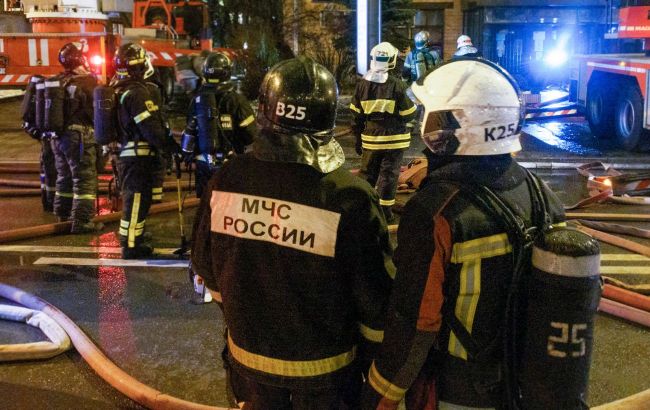Russian Voronezh shaken by explosions and lights in sky, missile threat reported
 Russian Ministry of Emergency Situations (Illustrative photo: Getty Images)
Russian Ministry of Emergency Situations (Illustrative photo: Getty Images)
Residents of Voronezh, Russia, were alarmed by flashes in the sky during the night of November 9, according to Russian media.
At around 3:40 a.m., a missile threat was announced in the Voronezh region.
Residents were advised to shelter in windowless buildings with solid walls, or, if they were outside, to enter the nearest building or shelter.
Later, residents began reporting explosions. Voronezh social media pages mentioned at least three blasts.
Within minutes, posts appeared describing a glow and bright flashes in the sky, which frightened Voronezh residents.
The pro-Ukrainian channel Exilenova+ suggested a possible attack on Voronezh’s CHP-1 (Combined Heat and Power Plant 1).
As RBC-Ukraine previously reported, unidentified drones targeted Voronezh in August. Initial reports mentioned two explosions, but later it was confirmed that there were more than ten.
Oil depot in Voronezh
Before the incident, the partisan group Atesh reported that its agents had conducted reconnaissance on a strategic Russian oil depot in Voronezh. This facility serves as a key logistical hub for supplying fuel and lubricants to Russian troops fighting against Ukraine in the Kharkiv and Sumy directions.
Information about the depot was reportedly passed on to the Ukrainian Defense Forces.
Production of engines for Iskander missiles
Partisans from the Atesh movement also exposed a site in Voronezh that manufactures engines for Iskander missiles. According to reports, an Atesh agent inspected the premises of the Design Bureau of Chemical Automatics (KBKhA), which is part of Roscosmos and develops and produces liquid rocket engines.
Atesh claims that this facility produces engines for the tactical-operational missile systems Iskander‑M, which have been actively used against Ukraine.
Additionally, KBKhA, together with the Voronezh Mechanical Plant, forms a single platform for producing engines for intercontinental ballistic missiles (RS‑20, RS‑18), air‑defense systems, and launch vehicles such as Soyuz and Proton, among others.
All collected information was reportedly passed to the Ukrainian Defense Forces.

